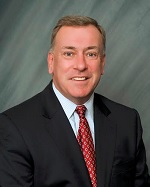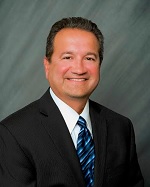 |
| Alliqua CEO David Johnson |
Alliqua Biomedical is a relatively small maker of hydrogel wound care and drug delivery systems looking to delve into the hot regenerative medicine space, and a recent investment from Celgene ($CELG) has given the company a chance at a higher profile in the arena.
FierceDrugDelivery spoke to Alliqua CEO David Johnson and biomedical arm CEO James Sapirstein about what the company hopes to gain and where it goes from here.
Alliqua's hydrogel platform creates of a solid "sheet" of water with the use of cross-linked polymers. These can be used for a number of purposes, as Alliqua has shown, including drug-delivering patches and stem cell-based regenerative dressings.
And Celgene Cellular Therapeutics agreed to invest $6 million in the company late last month, appropriating about 14% of Alliqua's stock and appointing the company to develop and market its Biovance and extracellular matrix (ECM) wound care products, Johnson told FierceDrugDelivery. Both products deliver a placental stem cell-based solution to "allow cellularization of the skin into a healing mode," Johnson said, now using Alliqua's hydrogel platform as a means for delivery.
"By partnering with Celgene, we've added another level of respectability," Johnson said. "It gets us into the regenerative space with the FDA-approved Biovance ready to go, to gear up manufacturing and launch in Q2. At the same time, we will spend the next 6 months putting ECM through to the FDA, and with 510(k) clearance, we'll have it on the market in the first half of 2015."
Along with the agreement, Celgene Executive Vice President and COO Perry Karsen joined Alliqua's board of directors.
 |
| Alliqua Biomedical CEO James Sapirstein |
The Celgene deal added to another late-2013 agreement with sorbion, a wound care dressing developer looking to further distribute its sachet and sana dressings.
And on its own R&D side, Alliqua is working to move another drug delivery product into the space, this one a hydrogel-based lidocaine patch meant to compete with Endo Pharmaceuticals' ($ENDP) currently marketed version for skin irritation. In preclinical studies, the patch showed a higher peak concentration of lidocaine and for a longer period of time.
"We're now looking at the next step in the preclinical process," Sapirstein said. "In a side-by-side comparison, our patch was just as potent and sometimes more than Lidoderm, and we're looking at a variety of different avenues for commercializing through either generics or partnering."